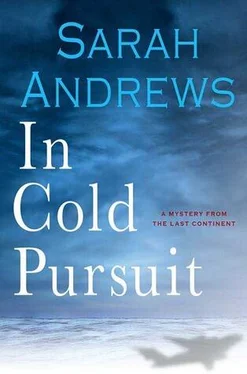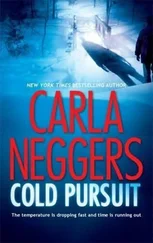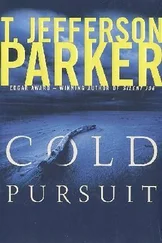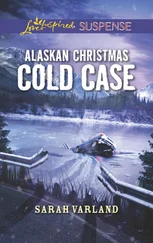Valena fought to keep her voice steady. “I’m still not clear on this. Why did you have to leave? And why was it going to take an extra year?”
Dan Lindemann’s voice rose and cracked. “When that business with the newspaper article hit, it was one big shit-storm. It was all he had on his mind for weeks. Then he had the US Senate dragging his butt into chambers and cutting him to bits. I was doing all the work. Me and Bob. We were running all the lab analyses and even beginning to write the papers.”
“Isn’t that what graduate students do?”
Dan bared his teeth in frustration. “We hardly ever saw him! He was either flying back and forth to Washington to testify, or he was in his office with his door shut. Or God knows where. Bob finally pulled the ripcord. He would have stayed, but no, there was no funding all of a sudden for a postdoc, let alone an actual research associate. Jeez, Valena, don’t you get it? He’s down to running his research on cheap labor! It’s grad students or nothing!”
“I can’t believe this.”
“You don’t want to believe it. Why, have you had a different experience? How many times have you actually had five minutes of Emmett’s time? I’ll bet he had Taha tell you what you needed for coming to Antarctica, and Taha’s never even been here! Just look at you, you’re wearing FDX boots! He didn’t even take enough care to tell you to bring boots you can actually walk in!”
Valena tried to focus on the vegetables. Doggedly, she said, “I came here to talk to you because I’m trying to get a handle on what actually happened last year at the high camp.”
Dan grabbed two more cookies, said, “I’m not even going to talk about that,” and abruptly exited the tent.
DINNER WAS A SILENT AFFAIR, AS MUCH BECAUSE EVERY-one was exhausted from a day’s physical efforts at 4,200 feet above sea level on a glacier as because there was nothing to talk about. All sat about the table in their parkas and fleece hats, eyelids sagging from the week’s work. Naomi Bosch made small talk for a while and then slipped into some puzzle she was working out in her mind. Dan Lindemann stared at his plate. One driller ate with his head bowed over one of the newspaper summaries that the helicopter pilot had dropped off. The other fiddled with little drawings he was making in the margins of page two of another.
When Valena produced a pan of gingerbread that she had baked in the Coleman oven, it was gone in two minutes, but the only formal reaction she got was from the driller who was drawing pictures, who made brief, rapturous eye contact with her as he announced, “I love ginger. You may stay.”
Dan left the instant dinner was over and did not return. One by one, the other members of Naomi Bosch’s Clark Glacier crew mumbled good nights and stumbled off to bed. Valena brought the melt water back up to a boil and refilled the thermoses, then filled her own water bottle, climbed down inside the sunken latrine to empty her bladder into the pee bottle, emptied that through the funnel into the local fifty-five-gallon drum, and shuffled off down the line of tents to her own.
Ensconced in her sleeping bag with the warm water bottle up against her belly, she thought long and hard about the day, the week, and her life, and once again about the joys of discovering herself as a scientific colleague. She had never fit in anywhere like she fit here in Antarctica. Dan Lindemann might be sorry she was there, but everything else was so perfect that he was easy to discount.
Finally, with the bright light of the Antarctic night still shining through her eyelids and a fine rime of ice crystals forming on the inside of the tent from her exhalations, she slipped off into a deep and dreamless sleep.
SUNDAY MORNING FOUND MCMURDO STATION IN A somber mood. Sunday breakfast, a meal usually frequented only by those who had not found a party the evening before, was mobbed with those who did not feel that they could handle Steve Myer’s memorial service on an empty stomach, and those on the night shift who had stayed up to join them. In anticipation of the hike up Observation Hill to the place chosen for this observance, most had already dumped their trays into the dish room and had returned to the dining hall to drink an extra cup of coffee to help keep them warm. They sat quietly, watching a gathering snow flurry obscure the landscape outside the windows.
George Bellamy’s voice boomed out over the public address system. “Good morning. This is to announce that the memorial service for Steve Myer, which was to be held on Ob Hill, will be held instead in front of the chapel. This is because it is snowing. Once again—”
The voice coming over the speaker was drowned in a rising tide of grumbling, growling voices. There was a great scraping of chairs as every person in the room stood up and filed out past the dish room, leaving their coffee cups by an untended window, the dishwashers having already left to get their coats.
A great tide of red and tan parkas filtered out through the falling snow and flowed toward Observation Hill, funneling now into a file four wide as the slope steepened. The only sound was that of boots crunching through crusted snow into scoria. As the first reached the summit and gathered around Scott’s cross, others began to spill out around the slope below it. They were consumed in a soft, white world that deadened sound, a cocoon of opacity that fell from the sky like frozen tears.
Father James Skehan stood in front of the cross, eyes closed in prayer, a violet stole draped across the shoulders of his big red parka. A PhD in geology and years working on the glaciers unlocking the secrets of climate had not washed his earlier seminary training from him. He held in his gloved hands his copies of the Rite Book and the Holy Bible. The fine leather of his Bible was soft and frayed from all the years he had carried it with him to his field locations. He opened his eyes, looked out across the multitude, and said, “Let us pray.”
As Father Skehan led the citizens of McMurdo through the liturgy for the dead, the falling snow thickened, and the world continued to lose its edges. The cadences of the familiar words brought comfort, and in many, released tears.
At length, Father Skehan turned to the Boss and asked him to say a few words. The Boss reached out a hand for Father Skehan’s Bible and read from it, his strong, paternal voice both soothing and heartbreaking. Then he closed the book and said, “I chose to ask Father Skehan here to offer a Mass because Steve mentioned to me once that he was of the Catholic persuasion. More often he spoke of how this place filled his heart. We come from far places to work here, places where it’s warm and we have family and where you can take long showers, but we always leave a part of ourselves here. I think of how the Greeks might have seen it: they had the myth of Persephone. She’s the girl who ate those seeds from the pomegranate. She was beautiful, body and soul. Everybody loved Persephone, including Hades, the god of the underworld. One day while she was gathering flowers, he abducted her, just split the earth open and swallowed her up.
“Things got bad on earth after Persephone was abducted. Her mother Demeter grieved her so intensely that the plants ceased to grow. It was so bad in fact that Zeus went down to the underworld and demanded the girl’s return and got it. But she had eaten those seeds, and that bound her to the underworld, where nothing grows, for that many months each year.
“I’m not a young maiden who gathers flowers and neither was Steve, but I think on Persephone each and every time I come down here. This place gets into your soul. Although nothing grows here, it’s like a passionate fruit of intense flavor, and we return to eat of it year after year. And that’s where we turn that myth inside out. We long for this underworld. We know something about it that few people ever get to know. It is bright and clear, and it sings to us in our dreams, like a mirror in which we can at last see ourselves clearly.
Читать дальше












